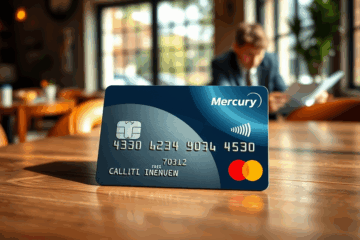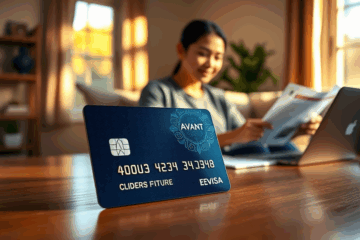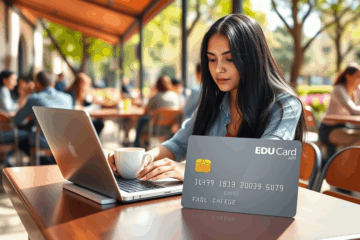How to Get a Credit Card Without a Bank Account
Credit Card access is a crucial financial tool for many, but what if you don’t have a bank account? In this article, we will explore various options available for individuals seeking credit without the traditional banking setup.
From understanding credit eligibility to examining secured and prepaid cards, we will delve into the possibilities, ensuring you have all the necessary information to navigate this financial landscape confidently.
Additionally, we will cover application requirements and highlight online services that can facilitate your credit card application process, making it easier to secure the credit you need.
Setting the Stage: Accessing Credit Without a Bank
Non-bank account holders often seek alternative financial solutions due to various reasons including lack of access to traditional banking services or a preference for maintaining privacy.
Relevant motivations can also stem from individuals looking to build or repair their credit profiles.
Without a checking account, traditional banking services are out of reach, however, securing a credit card remains a viable option.
The process focuses on assessing one’s credit card eligibility through factors like credit score and income verification rather than bank details.
This flexibility opens doors for many needing credit.
Different pathways exist for non-bank account holders to access credit cards without requiring a bank account.
Options include:
- Secured cards
- Prepaid cards
- Virtual credit cards
Each option carries its own benefits and requirements, tailoring to a wide range of financial situations and needs.
For instance, Axis Bank credit solutions highlights how accessible these options can be.
By pursuing these avenues, individuals find it feasible to manage finances and build a credible financial history.
Secured Credit Cards: Step-by-Step Application
Secured credit cards offer a practical solution for building credit when one doesn’t hold a bank account.
These cards function like regular credit cards but are backed by a Security Deposit, which serves as collateral and determines your credit limit.
This deposit is refundable and sets the foundation for your credit-building journey.
Despite lacking a bank account, individuals can still apply for these cards by using alternative financial documentation.
Many issuers allow payments through money orders or prepaid cards, ensuring accessibility for everyone.
Capital One Secured Credit Cards provide insights about these accounts.
Secured cards often include benefits such as rewards and minimal fees, making them particularly attractive.
- Research Card Issuers: Look for those accepting alternative financial documentation. Huntington Bank Secured Credit Card is a great choice.
- Check Deposit Requirements: Prepare your Security Deposit through non-bank alternatives.
- Gather Necessary Documentation: Include identification and proof of income from employment or consistent sources.
- Submit an Online Application: Many issuers accept applications via their websites without needing bank details.
- Receive and Use Your Card: On approval, your card will arrive, ready for use, enabling you to build credit responsibly.
Understanding this process empowers consumers to strategically manage their financial health, even without a traditional banking relationship.
Prepaid Cards as Practical Substitutes
Prepaid cards provide an alternative for consumers who lack bank accounts by mimicking credit card functionalities.
Unlike traditional credit cards that require a credit score assessment, prepaid cards offer convenient access to financial services without the need for a bank account.
These cards can be loaded with funds in advance, allowing users to make purchases anywhere major card networks such as Visa or MasterCard are accepted.
They eliminate the necessity for a credit check, making them accessible even to those with limited credit history.
Loading funds onto a prepaid card is simple and flexible, with numerous options available that do not require bank transfers.
Users can reload their cards through cash deposits at retail locations, direct deposits from employers, or reload networks designed specifically for prepaid cards.
These methods offer tangible solutions for unbanked individuals who need financial tools that adapt to their circumstances.
A relevant caution is that while prepaid cards offer utility, they may also come with fees for various transactions like ATM withdrawals or balance inquiries.
Hence, it is vital to choose cards with minimal fees to ensure maximum benefit.
As underscored by platforms like NerdWallet’s list of Best Prepaid Debit Cards, it’s crucial to evaluate options carefully.
Understanding Virtual Credit Cards
Virtual credit cards are digital payment solutions that do not require a traditional bank account, allowing users to make online purchases easily and securely.
These virtual cards, like those available from Revolut, offer a convenient way to access funds without cash transactions.
Applicants without checking accounts can fund their virtual cards through alternative means such as prepaid options or linking to online payment systems.
This flexibility ensures accessibility for individuals who may not have access to conventional banking services.
Transitioning to the security aspect, Virtual card anonymity is a standout feature, providing a layer of protection by masking the actual card details during transactions.
This minimizes the risk of unauthorized access to personal information and reduces fraud.
In addition, the flexibility of virtual credit cards facilitates fast, temporary solutions, as evidenced by products like the ZET for a detailed guide on these options and specific requirements.
| Card Type | Key Document | Alternative |
|---|---|---|
| Secured | ID | Utility Bill |
| Prepaid | Photo ID | Purchase Receipt |
| Virtual | Digital ID | Online Verification |
Web-Based Services for Card Applications
Expanding access to credit cards has become increasingly accommodating for those without traditional bank accounts.
Web-based services are at the forefront, providing seamless credit card application processes tailored specifically to non-bank account holders.
Karat, for instance, offers unique financial solutions for creators, allowing them to secure customized financing and gather rewards without needing a bank account.
Interested individuals can explore these offerings further by visiting Karat’s official site.
Another prominent platform, Privacy.com, is renowned for its virtual card services, empowering users to protect their financial details online by generating unique card numbers for each transaction.
More information about these services is accessible through the Privacy.com official site.
These platforms excel by providing flexibility and security, addressing the needs of users who may find themselves excluded from conventional banking services.
Users often highlight the convenience of managing their finances without the need for a physical bank location.
One user remarked, “Getting a virtual card from Privacy.com was straightforward and saved me the hassle of dealing with bank lines, making it perfect for my lifestyle.
” As digital solutions continue to evolve, they present inclusive opportunities for financial empowerment to a broader audience.
In conclusion, obtaining a credit card without a bank account is entirely feasible.
By exploring options like secured, prepaid, and virtual cards, and understanding the application requirements, you can successfully access credit and enhance your financial opportunities.



0 Comments